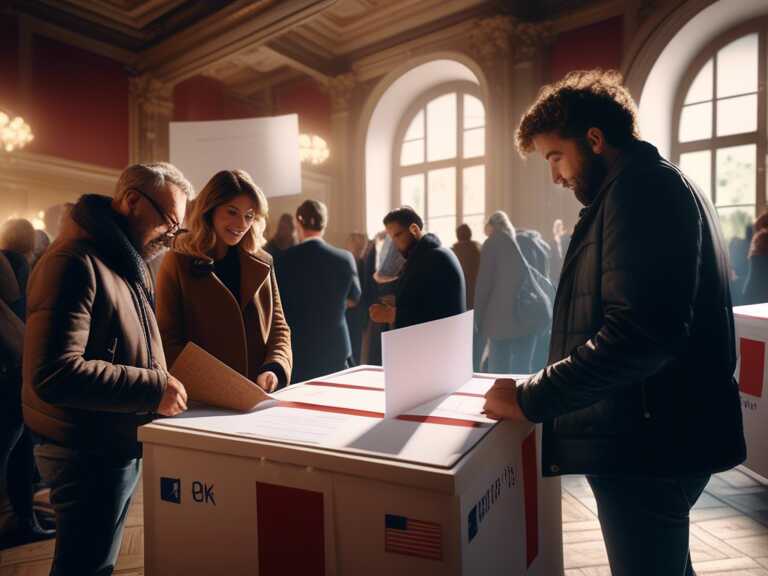
France's pivotal runoff elections could shift power dynamics and shape Europe's diplomatic future
Voting in France's pivotal runoff elections may lead to a historic far-right victory, political deadlock, and crucial global implications.

Voting has begun in mainland France on Sunday in pivotal runoff elections that could hand a historic victory to Marine Le Pen's far-right National Rally and its inward-looking, anti-immigrant vision — or produce a hung parliament and political deadlock.
French President Emmanuel Macron took a huge gamble in dissolving parliament and calling for the elections after his centrists were trounced in European elections on June 9. The snap elections in this nuclear-armed nation will influence the war in Ukraine, global diplomacy, and Europe's economic stability, and they're almost certain to undercut President Emmanuel Macron for the remaining three years of his presidency.
Significant Turnout
The first round on June 30 saw the largest gains ever for the anti-immigration, nationalist National Rally, led by Marine Le Pen. A bit over 49 million people are registered to vote in the elections, which will determine which party controls the 577-member National Assembly, France's influential lower house of parliament, and who will be prime minister.
If support is further eroded for Macron's weak centrist majority, he will be forced to share power with parties opposed to most of his pro-business, pro-European Union policies.
Racism and antisemitism have marred the electoral campaign, along with Russian cybercampaigns, and more than 50 candidates reported being physically attacked — highly unusual for France. The government is deploying 30,000 police on voting day.
Increased Tensions
The heightened tensions come while France is celebrating a very special summer: Paris is about to host exceptionally ambitious Olympic Games, the national soccer team reached the semifinal of the Euro 2024 championship, and the Tour de France is racing around the country alongside the Olympic torch.
As of noon local time, turnout was at 26.63%, according to France's interior ministry, slightly higher than the 25.90% reported at the same time during the first round last Sunday. During the first round of voting last Sunday, the nearly 67% turnout was the highest since 1997, ending nearly three decades of deepening voter apathy for legislative elections and, for a growing number of French people, politics in general.
International Impact
The elections could leave France with its first far-right government since the Nazi occupation in World War II if the National Rally wins an absolute majority and its 28-year-old leader Jordan Bardella becomes prime minister.
The outcome remains highly uncertain. Polls between the two rounds suggest that the National Rally may win the most seats in the 577-seat National Assembly but fall short of the 289 seats needed for a majority.
No matter what happens, Macron's centrist camp will be forced to share power. Many of his alliances' candidates lost in the first round or withdrew, meaning it doesn't have enough people running to come anywhere close to the majority he had in 2017 when he was was first elected president, or the plurality he got in the 2022 legislative vote.
Impact on Macron
Financial markets have been jittery since Macron surprised even his closest allies in June by announcing snap elections after the National Rally won the most seats for France in European Parliament elections. Regardless of what happens, Macron said he won't step down and will stay president until his term ends in 2027.
Share news















